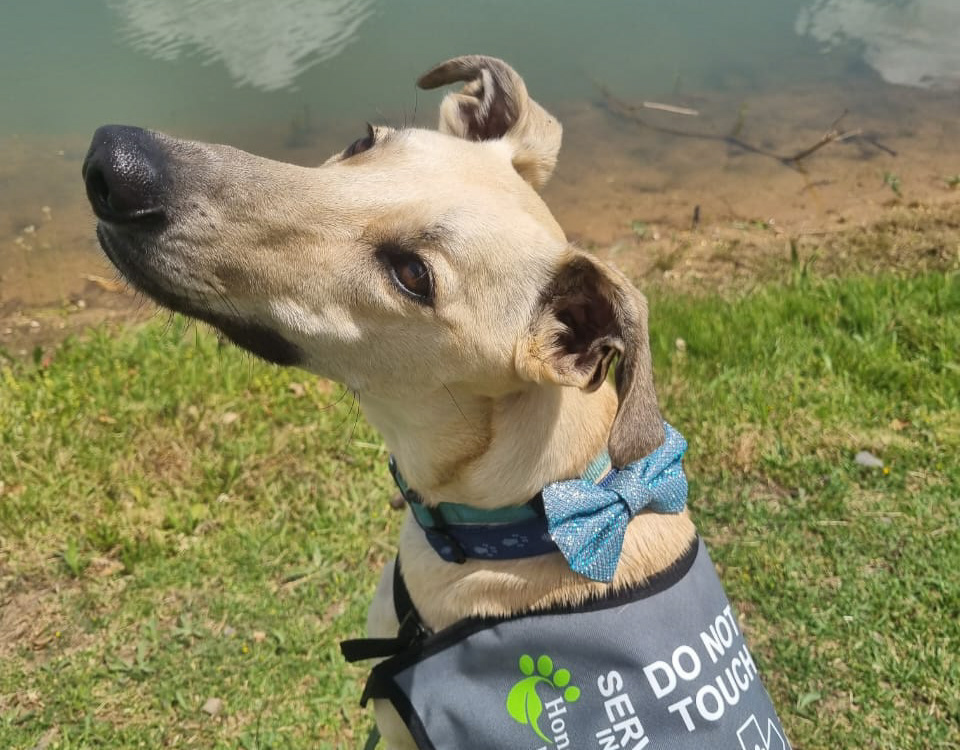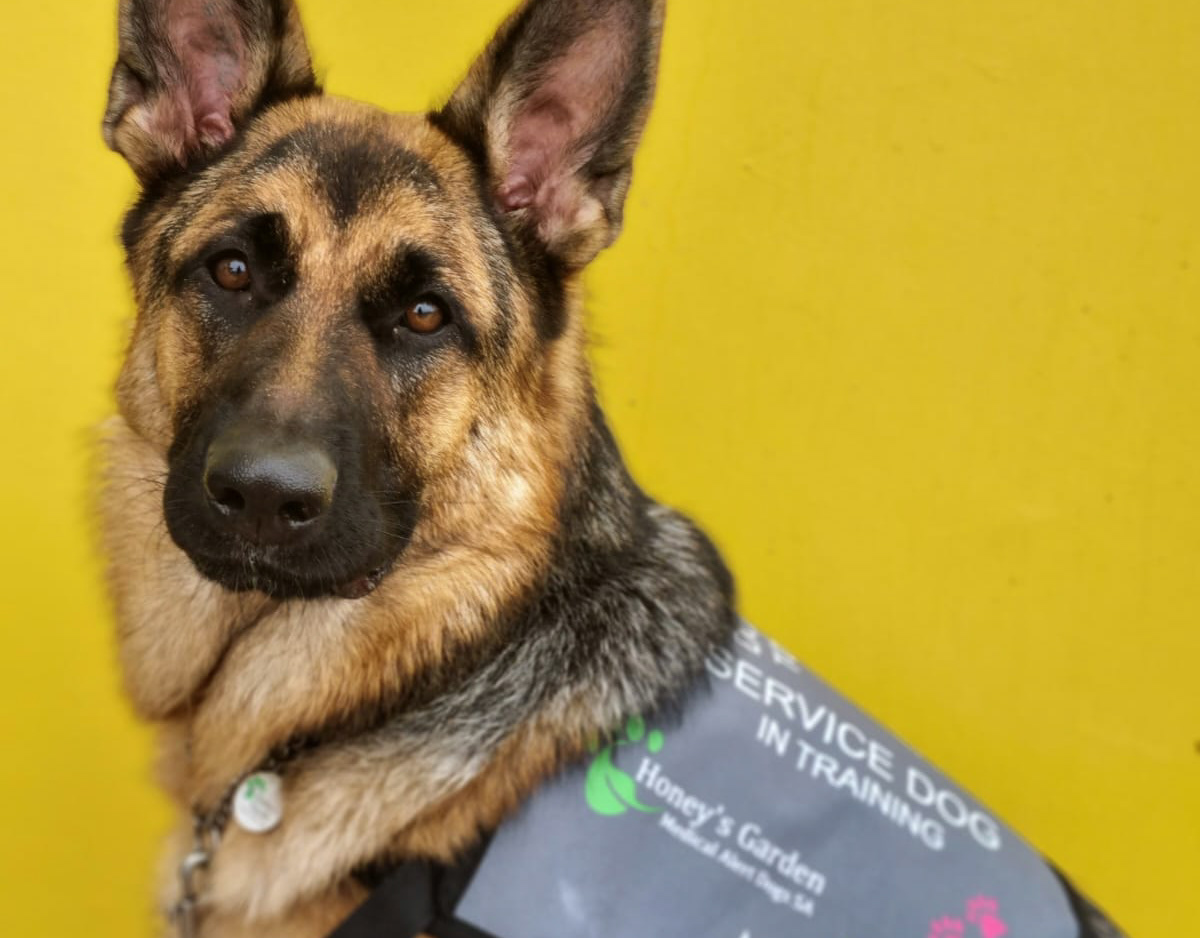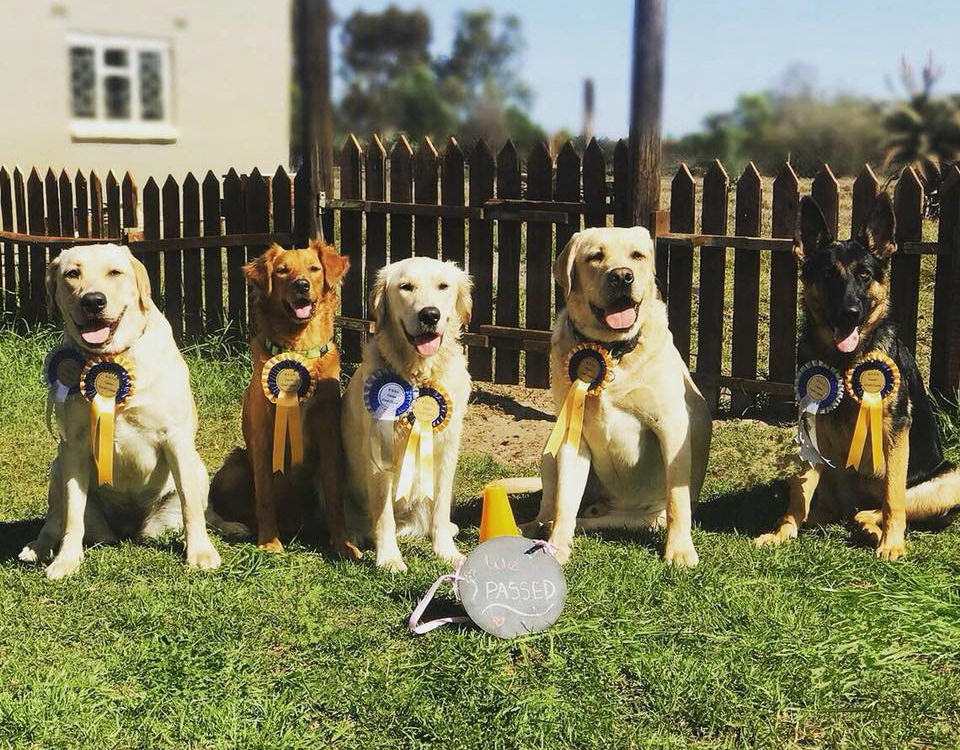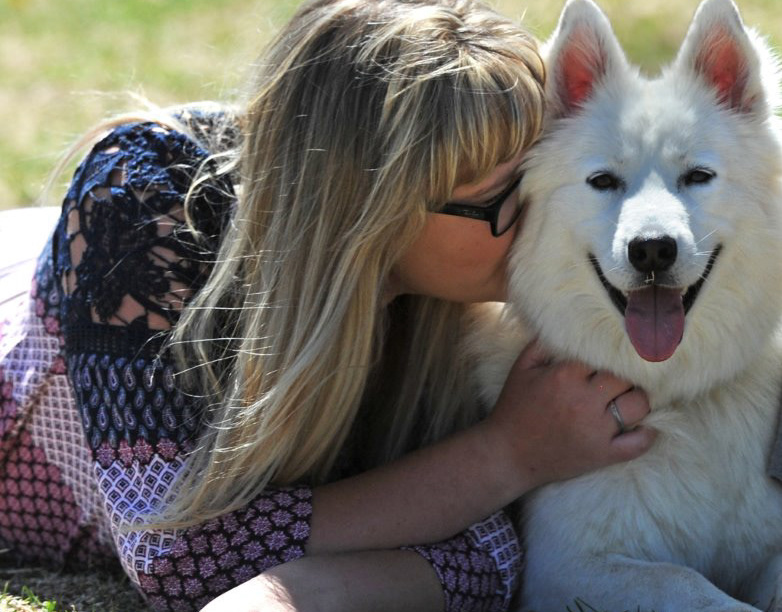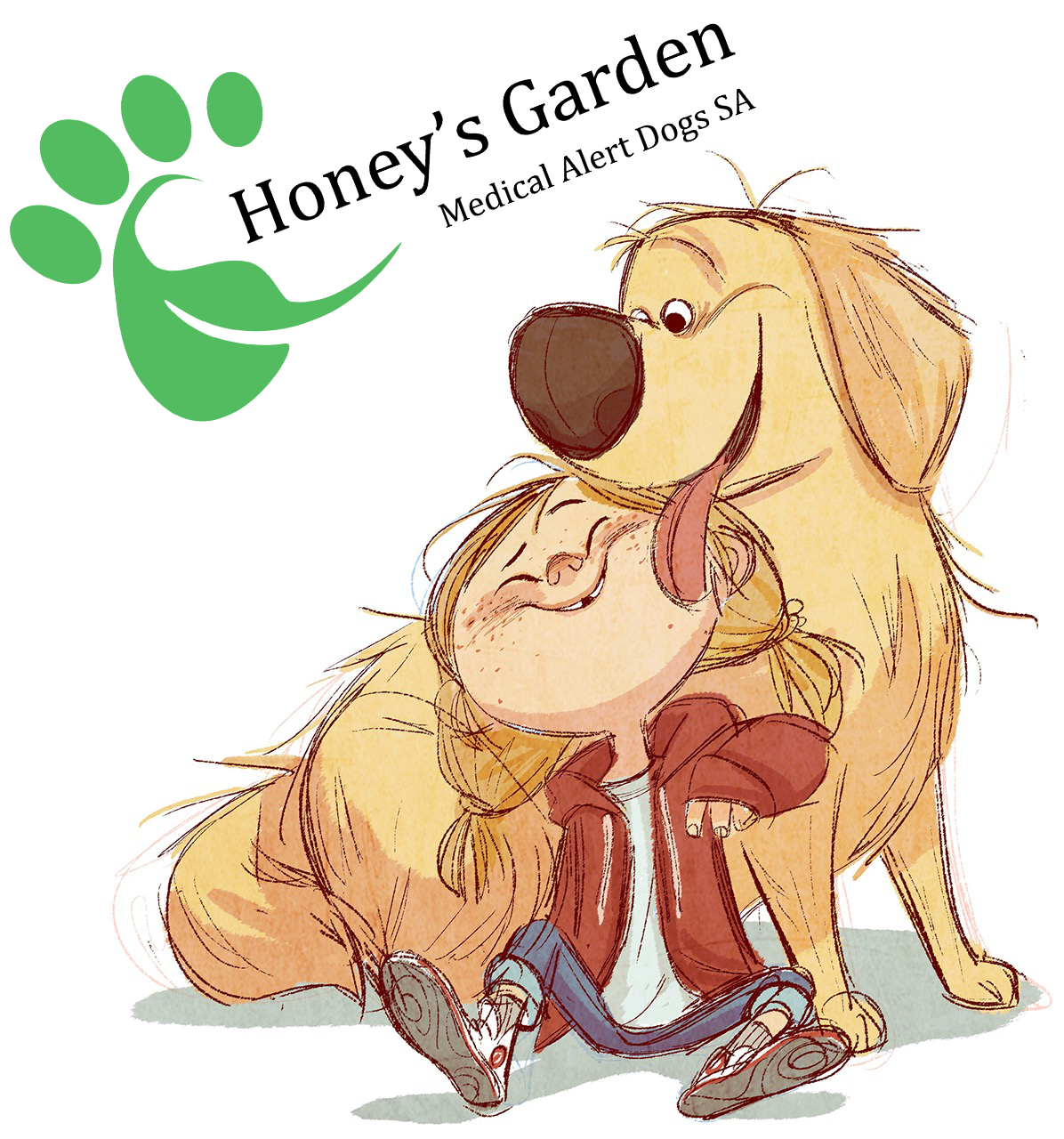
Service dogs enhance their families’ lives in many ways, and can be such a blessing and even a lifesaver to any child or adult in need. There are a few important things that we feel you need to know before embarking on this incredible journey.
The process: (for more detailed information please see our “application process” page).
Upon applying for a service dog by submitting your application form and relevant documentation you will be contacted for a Q and A call about what you expect and need from a service dog within a week. Upon confirming that we can train a dog for your needs, we will await the non-refundable deposit from you (currently R10,000) and you will be added to our waiting list.
We will arrange a meeting time and day at our office in Sunningdale, Cape Town, or via video calling if this is not possible. We will also organize a home inspection.
When we have received full payment for the family fee, we will set to work matching your family’s needs to a dog in training and begin working with that dog accordingly. You may be asked to send videos, voice clips and saliva or sweat samples throughout the training period in order to assist with the training of your dog.
Please note that we select the dogs based on their personality and ability to fit into your lifestyle. We promise that all of our dogs are exceptional and our matching skills are second to none. Your safety is our top priority and we will select a dog that is right for your family and situation, which can protect and work for you to the best of its ability.
Before graduation we will do a video call with you, us and your dog in order to introduce you virtually and answer any last minute questions that you may have about your two week workshop at our facility in Cape Town. If you need more time or have questions beforehand, we can take phone calls to assist.
At the 2 week final workshop you will be taught how to handle your dog and how to give the cues and commands that we have taught them for you. You will receive group lessons and some one on one lessons where we discuss practical uses for each cue, and commands that the dog has learnt will be discussed and practiced. You and your dog will then do a Public Access test together and qualify as a team. The PA test will include the given cues that we have taught you at the workshop.
We do NOT advocate putting anybody in danger by forcing a hypoglycaemic event, seizure or other medical emergency during this workshop training time.
You will then be given a graduation kit and a starter pack which includes information and a schedule for you to continue with at home.
It is your responsibility to ensure safe travel of your dog back to your home post-graduation. We will be able to offer planning assistance should you require them to fly in the aircraft with you.
Training a service dog is an extremely in depth process that takes months to years of preparation at our facility with the use of qualified trainers and trained volunteers and fosters. It is your responsibility to maintain any training that is required of you as stated in your starter pack. This will include at least an hour of practice each day (split into short manageable sessions). You will also be expected to join a local dog training club and train with your dog at least once per month in a group social setting (quite enjoyable!). We will assist you in finding a quality training school close to home that meets yours and your dog’s needs.
The maintenance training of a service dog never stops. We will be on call to assist via phone or our weekly training classes and can even do home visits if you are in our local region. You are required to retest your dog annually (although you do not have to return to our centre for this – we don’t mind if you choose to!).
It is not uncommon for a service dog to act strangely upon returning home with their new family. It is a big change and can be quite daunting for them. Have patience, show them lots of love, keep up the practice and give us a call if you are concerned. All of our dogs successfully do their work after a settling period. It is best not to put too much pressure on your service dog upon taking them home. Keep big outings and events to a minimum until your dog has learnt to trust you completely, and you really understand each other enough to cope with any situation.
The bond between a service dog and its partner is extremely important and it is critical that the bond is the first priority when bringing a service dog home. Sadly this means that interactions between the dog and siblings, partners and parents of older children who are not the primary focus for the dog are kept to a minimum.
If you have a child who requires assistance with the dog and is unable to fully handle the dog themselves, you will most likely be the primary handler. This will be explained fully through communication between yourself and Honey’s Garden, but to give you an idea, it can mean the following:
Asking the dog to check on the child (Diabetic Alert Dogs in particular)
Asking the dog to locate the child
Asking the dog to STAY with the child
Asking the dog to brace (to prevent eloping when tethered)
Asking the dog to lie across the child or assist during a seizure
You will be the primary carer/leash holder for the dog but the whole focus is around the patient/child.
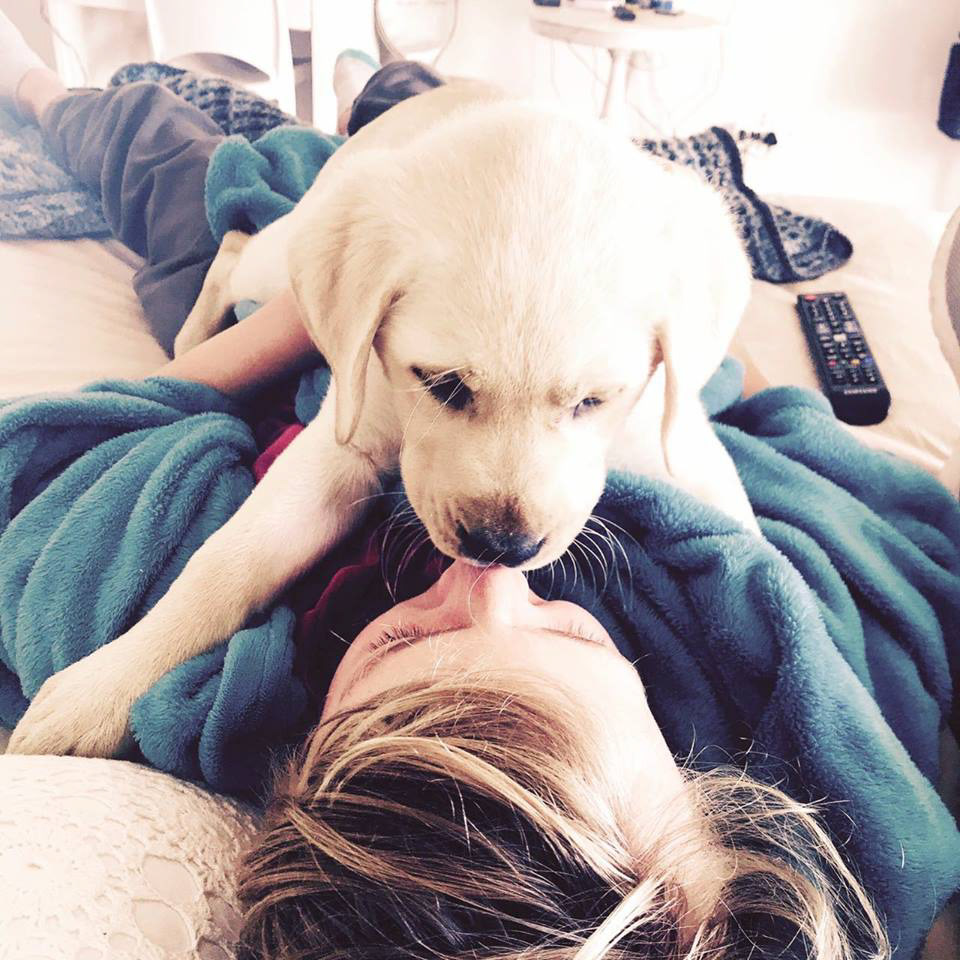
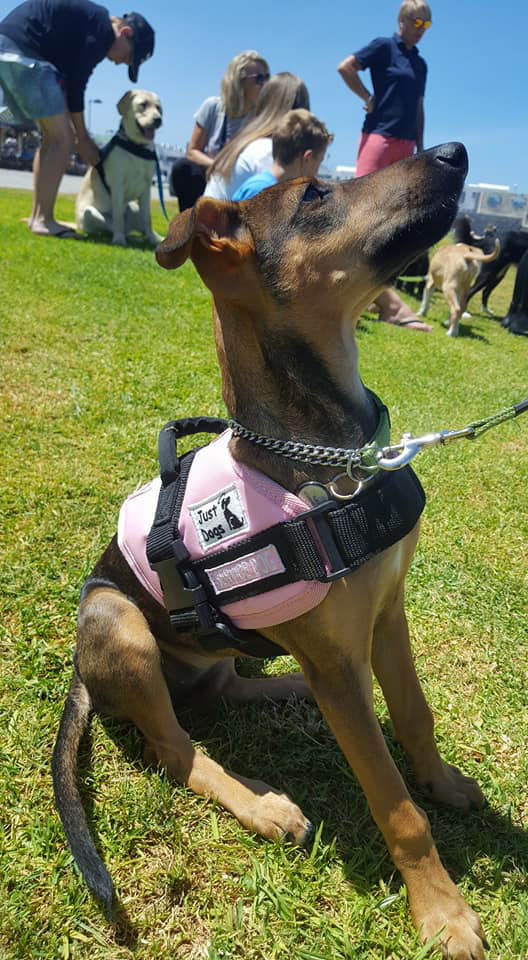
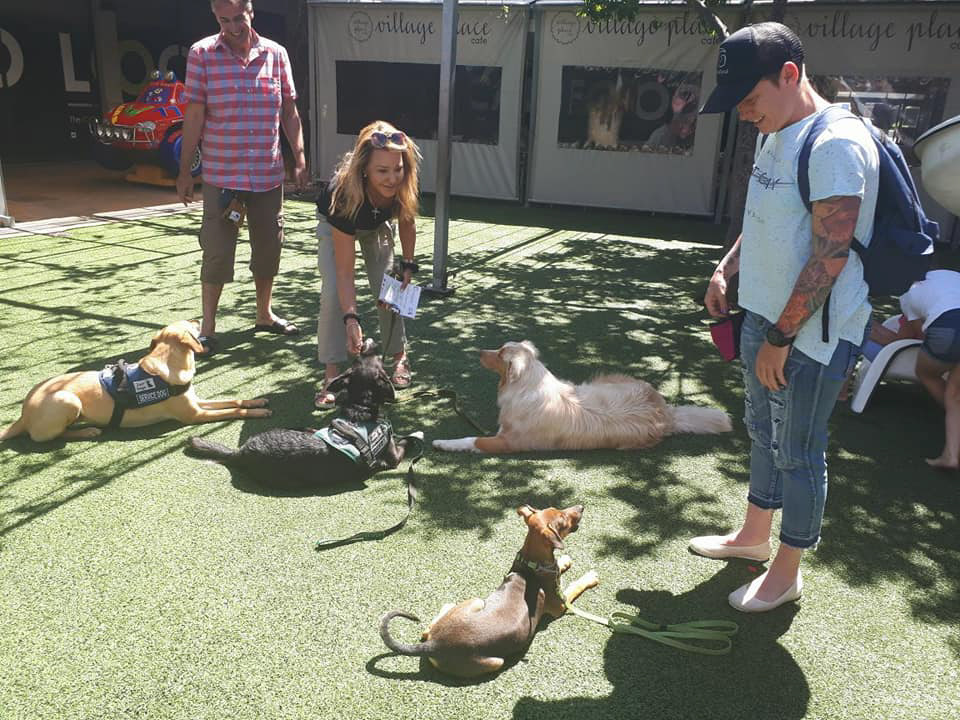
Although these dogs are extremely well trained, they are not robots. Service dogs have needs just like any other pet and should be allowed time every day where they are free to be a dog. This means going for walks and free running where possible, playing fetch in the garden and taking breaks when you have your medical situation under control. They also need guidance (especially in the beginning stages) and to be told what to do in certain situations, it is about communicating your needs with your dog. You will be briefed on all of this and can call any time to discuss – no question is a silly question!
Public access is a great thing but due to these service dogs being fairly new to South Africa, our teams get turned away from establishments every so often. It is important that you advocate and educate on Honey’s Garden’s behalf. We are doing everything within our power to spread the good news and get as many companies on board as possible, but this is a work in progress. We find that simple education goes a long way.
It is your responsibility to ensure that your dog is well looked after, an integral part of the team, receives quality routine health care and is fed a decent diet. You will sign a doggy parent pledge to state that you agree to all of our terms when applying for a service dog. Once a service dog is ready to retire, you are welcome to keep them in your loving home to live out their days. If ever you cannot keep your service dog, they are to be returned to our facility for re-homing.
Having a service dog is a beautiful thing, it can be tricky at times, adjusting to having a best friend by your side 24/7 can be difficult, but we are here to help you thrive. They need daily maintenance and care, as well as ongoing training, but we promise that if everything is done correctly and with passion, you will not have a problem.
Honeys Garden is a nonprofit, 2016/387235/08 organization whose mission is to place quality service dogs with people within South Africa who are under privileged, fighting with disabilities or diseases, and veterans who have lost use of limbs or hearing. We also help with animal rescue, and educate the public regarding use of service dogs in public places.
